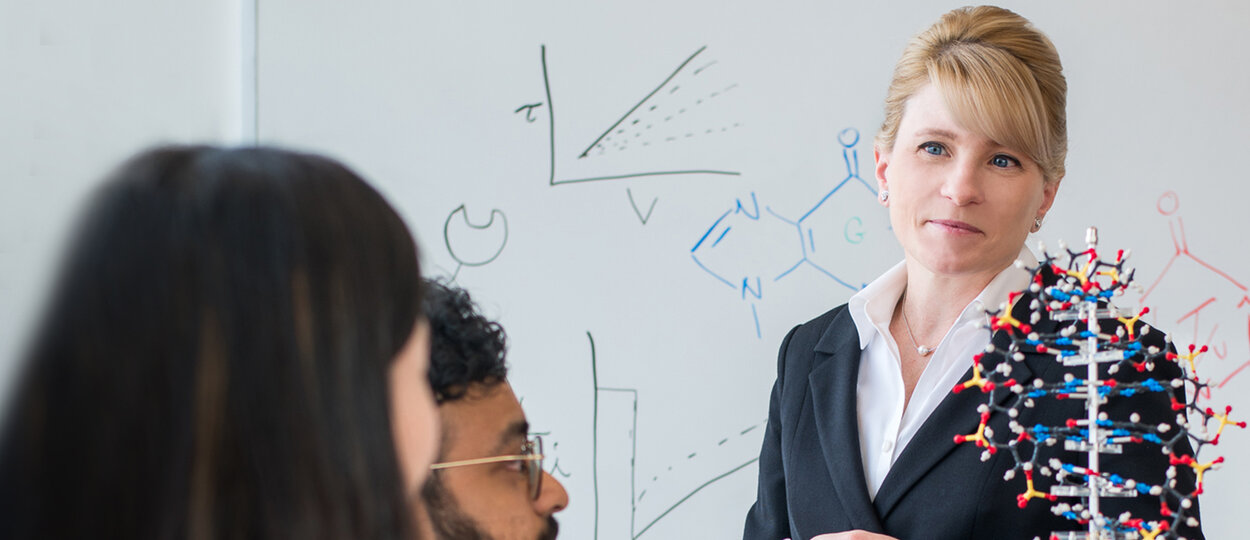Professor Shana Kelley is among nine professors from across the University of Toronto appointed as Fellows to the Royal Society of Canada – a recognition awarded to the country’s most distinguished scholars, artists and scientists.
As University Professor at the Leslie Dan Faculty of Pharmacy, Professor Kelley united materials chemistry, analytical chemistry, and chemical biology to detect biological and cellular analytes with unprecedented sensitivity. Her research spans the basic to applied and has yielded new nanomaterials and biomimetic molecules with advanced properties; it has also produced new medical diagnostic technologies for the diagnosis of infectious disease and cancer.
“I am incredibly honored to join this elite community of scientists and scholars in Canada and greatly appreciate the recognition of my group’s work. In particular, this honor highlights the many spectacular contributions of the trainees and scientists I have worked with at the University of Toronto.”
“I am incredibly honored to join this elite community of scientists and scholars in Canada and greatly appreciate the recognition of my group’s work. In particular, this honor highlights the many spectacular contributions of the trainees and scientists I have worked with at the University of Toronto,” said Kelley who recently joined the Department of Chemistry at Northwestern University but remains connected to the Leslie Dan Faculty of Pharmacy through a Status-Only appointment.
Widely recognized for her ability to build multidisciplinary research teams focused on tackling real-life clinical challenges, Professor Kelley developed a new “liquid biopsy” technology to improve treatment of prostate cancer, the second most common cancer in men.
“We are very excited about our new technologies that essentially allow us to find a needle in a haystack,” said Kelley when the Nature Chemistry study was published in 2018. “It paves the way for a straightforward and personalized screening tool that allows clinicians to see if a patient will respond to therapy or not. Our method is also rapid, accurate and inexpensive, which gives it real potential for clinical uptake,” she said.
Part of the rich biomedical research ecosystem at the University of Toronto, the Leslie Dan Faculty of Pharmacy is also steps away from some of the leading academic teaching hospitals in the world.
“This allows us to stay strongly connected to real-world problems and this has inspired us to push the clinical impact of our work as far as possible,” Kelley said.
Granted a royal charter in 1883, the goal of the Royal Society of Canada is to enhance connections between the scholarly, artistic and scientific communities and the larger society in order to promote knowledge and understanding for the benefit of all.
By: Kate Richards
More News
Image

PharmSci student’s research advances medication safety during pregnancy
Diana Nelles was inspired by women in pharmacology research to advance knowledge in understudied populations.
Read More
Image

LIGAND-AI aims to transform early drug discovery through machine learning
Assistant Professor Rachel Harding is contributing to global initiatives to generate data needed to advance and accelerate drug discovery.
Read More
Image

Exploring pharmacy: A summer camp experience for high school students
Now in its second year, Pharmacy Summer Camp continues to give high school students hands-on experiences in pharmacy and pharmaceutical sciences.
Read More
